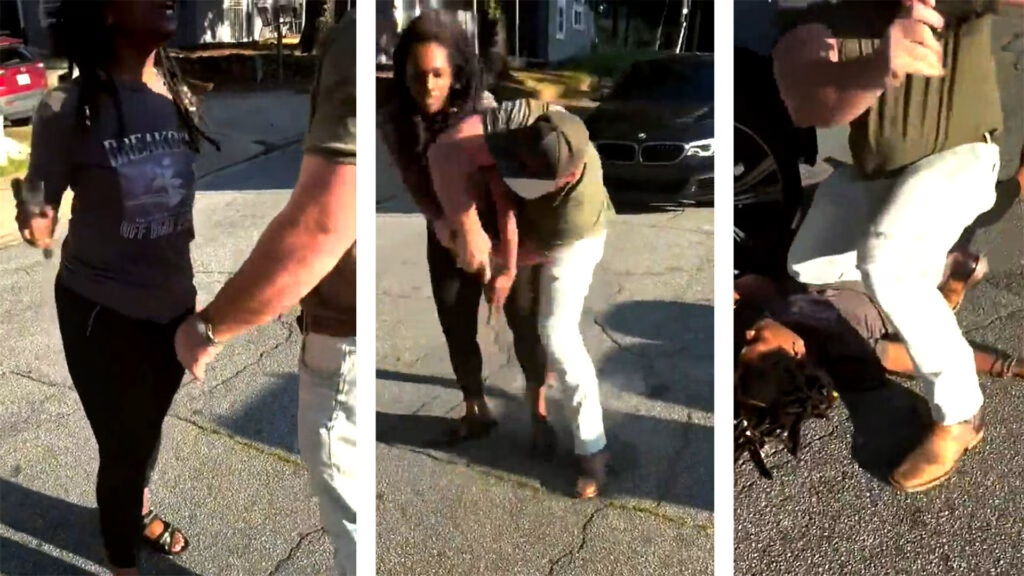What Should You Do If You’re the Victim of a Hit-and-Run?
Imagine you’re driving home with your kids after a fun day out, and suddenly, another car clips you and speeds off. Your first instinct might be to chase them down—after all, you want justice, right? But here’s where things can spiral. In a recent Atlanta case, Brandon Parker found himself in this exact situation. Instead of letting adrenaline take the wheel, experts recommend a different approach: stay calm, get the license plate number if you can, and call the police immediately.
According to the National Highway Traffic Safety Administration, hit-and-run crashes have been on the rise, with over 2,000 fatalities reported in the US in 2021 alone. Chasing after the other driver might seem like the only way to hold them accountable, but it can put you and your passengers in even greater danger. Law enforcement officers stress that your safety—and that of your loved ones—should always come first. Let the authorities do their job; your insurance company will thank you, too.
How Fast Can a Road Rage Incident Escalate?
It’s shocking how quickly a minor fender-bender can turn into a life-threatening situation. In Parker’s case, what started as a hit-and-run quickly escalated when he confronted the other driver—a woman who allegedly pulled a gun during the argument. The entire ordeal was caught on video by Parker’s 14-year-old son, highlighting just how rapidly things can go from bad to worse.
This isn’t an isolated incident. The AAA Foundation for Traffic Safety found that nearly 80 percent of drivers admitted to expressing significant anger, aggression, or road rage behind the wheel at least once in the past year. That’s a staggering number, and it shows just how common—and dangerous—these situations can be. One wrong move, one heated word, and suddenly you’re in a scenario you never imagined.
What Happens Legally When a Weapon Is Involved?
When a firearm enters the picture, the stakes skyrocket. In the Atlanta case, the weapon discharged during the struggle, but thankfully, no one was hurt. Still, the legal aftermath of such incidents is rarely straightforward. Police confirmed the discharge but hadn’t announced charges at the time of reporting. The reality is, even if you believe you’re acting in self-defense, the law can be murky.
Self-defense laws vary by state, but most require that your response be proportional to the threat. If you pursue or escalate the confrontation, you could find yourself on the wrong side of the law. Criminal defense attorneys often warn that what feels like justified action in the moment can look very different in a courtroom. The best move? Avoid confrontation altogether and let law enforcement handle it.
Why Do People React So Strongly Behind the Wheel?
There’s something about being in a car that seems to bring out the worst in some people. Psychologists call it “deindividuation”—the feeling of anonymity that comes from being inside a vehicle. Add in stress, traffic, and the pressures of daily life, and you’ve got a recipe for explosive reactions.
But here’s the thing: most road rage incidents are entirely preventable. The American Psychological Association suggests simple strategies like deep breathing, listening to calming music, or even just pulling over for a few minutes to cool down. It sounds basic, but these small steps can make a world of difference. After all, no one ever regrets taking a moment to pause—but plenty of people regret what happens when they don’t.
What’s the Safest Way to Handle a Dangerous Confrontation?
If you ever find yourself in a situation where another driver is aggressive—or worse, armed—the safest thing you can do is disengage. Lock your doors, stay in your vehicle, and call 911. Don’t try to play hero. Even if you’re in the right, the risks simply aren’t worth it.
Real-world examples drive this home. In Parker’s case, he managed to disarm the woman after a physical struggle, but he later admitted that things could have ended very differently. “Thinking back, I should have made some different decisions, because it could have cost my child,” he told local news. It’s a sobering reminder that the best outcome is always the one where everyone walks away unharmed.
How Can You Protect Yourself and Your Family on the Road?
Prevention is your best defense. Keep your distance from aggressive drivers, avoid making eye contact, and never respond to provocation with anger. If you witness a hit-and-run, focus on gathering information—license plate, vehicle description, location—and report it to the police as soon as possible.
It’s also wise to talk to your kids about road safety and what to do in an emergency. Make sure everyone knows to stay calm and follow your lead. And remember, dashcams can be invaluable for documenting incidents without putting yourself at risk.
A Final Word on Road Rage and Staying Safe
The big takeaway? Road rage isn’t about winning an argument or proving a point—it’s about making smarter, safer choices. Start with one change this week, whether it’s practicing patience in traffic or resisting the urge to confront another driver. Odds are, you’ll notice a difference in your stress levels—and your peace of mind—by the end of the month. Stay safe out there.

